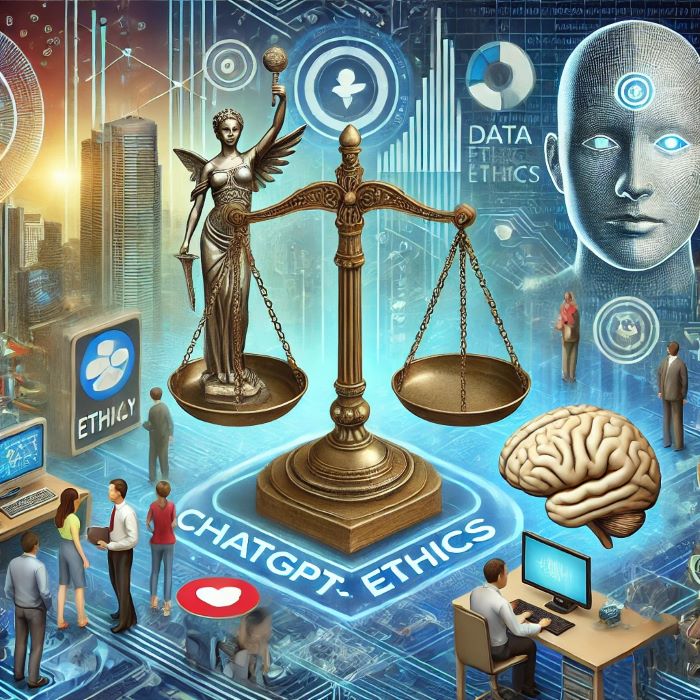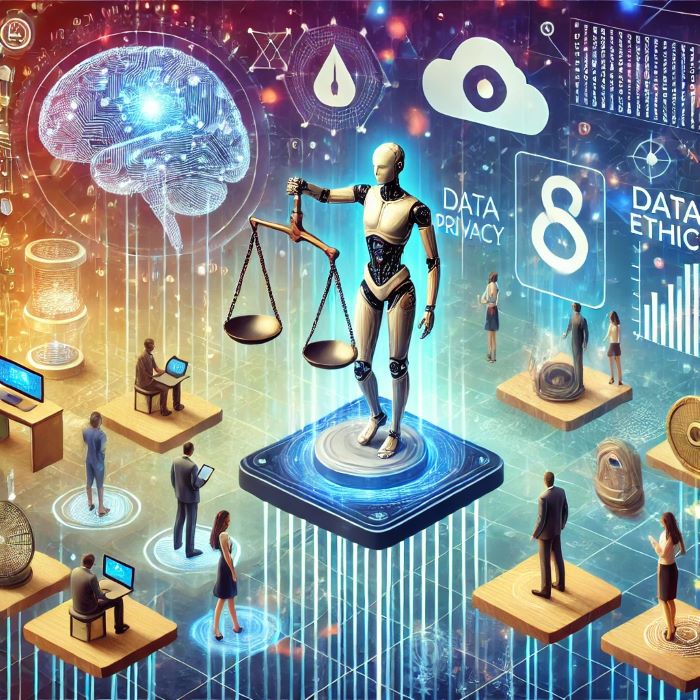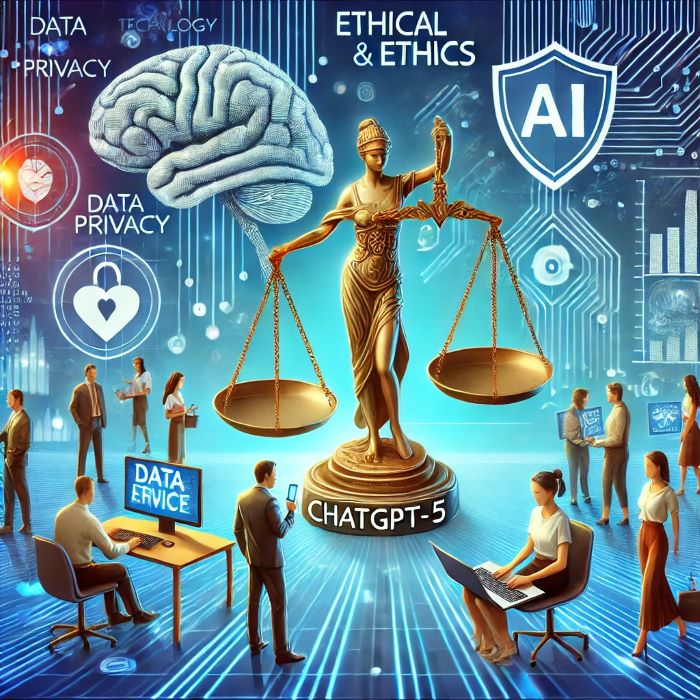Let’s talk about the ethical implications of ChatGPT-5 in daily life. Understand privacy concerns, job impacts, and ethical guidelines in this comprehensive guide.

With the advent of advanced AI models like ChatGPT-5, there is a growing need to address the ethical implications of ChatGPT-5 in everyday applications. As AI becomes more integrated into our daily lives, it raises significant ethical questions regarding privacy, job displacement, data security, and more. This article delves into these issues, providing a comprehensive overview of the ethical challenges posed by ChatGPT-5 and how they can be mitigated.
Understanding the Ethical Implications of ChatGPT-5
The ethical implications of ChatGPT-5 encompass various aspects, from its impact on privacy to its role in potentially replacing human jobs. Understanding these implications is crucial for developing ethical guidelines and ensuring responsible AI use.
Privacy Concerns and Data Security
One of the primary ethical implications of ChatGPT-5 is related to privacy and data security. As ChatGPT-5 processes large amounts of data, it must handle sensitive information with utmost care.
Handling Sensitive Information
ChatGPT-5 can inadvertently process and store personal data, leading to potential breaches of privacy. Developers must implement robust data encryption and anonymization techniques to safeguard user information.
Data Breaches and Security Risks
The risk of data breaches is a significant concern. Ensuring that ChatGPT-5 systems are secure and resilient against cyber-attacks is essential to protect user data.
Impact on Employment
Another major ethical implication of ChatGPT-5 is its potential impact on the job market. The automation of tasks traditionally performed by humans can lead to job displacement.
Job Displacement and Economic Effects
As ChatGPT-5 becomes capable of handling more complex tasks, many roles, especially in customer service and content creation, may be affected. This could result in significant economic implications and job losses.

Creating New Opportunities
However, ChatGPT-5 also has the potential to create new job opportunities. Roles in AI maintenance, development, and ethical oversight are likely to emerge, balancing some of the displacement effects.
Ethical Guidelines for AI Development
Developing and adhering to ethical guidelines is crucial to mitigate the ethical implications of ChatGPT-5. These guidelines should address issues such as bias, transparency, and accountability.
Bias and Fairness
AI models like ChatGPT-5 can exhibit biases present in their training data. Ensuring that the data used is diverse and representative is essential to minimize biased outputs.
Transparency and Accountability
Transparency in how ChatGPT-5 operates and makes decisions is vital. Users should be informed about the AI’s capabilities and limitations, fostering trust and accountability.
Real-World Case Studies
Examining real-world case studies helps illustrate the ethical implications of ChatGPT-5 in various contexts.
Healthcare Applications
In healthcare, ChatGPT-5 can assist with patient information management and support. However, ethical concerns about data privacy and the accuracy of AI-generated medical advice must be addressed.
Educational Tools
ChatGPT-5 can enhance learning experiences by providing personalized tutoring. Ensuring that this technology is used ethically and does not reinforce biases is essential for its successful implementation in education.
Future Directions for Ethical AI Use
Looking ahead, several strategies can help mitigate the ethical implications of ChatGPT-5 and promote responsible AI use.
Continuous Monitoring and Evaluation
Regularly assessing the performance and impact of ChatGPT-5 is necessary to identify and address any ethical issues that arise.
User Education and Awareness
Educating users about the ethical considerations of using ChatGPT-5 helps them make informed decisions and use the technology responsibly.

FAQs
What are the main ethical implications of ChatGPT-5? The main ethical implications of ChatGPT-5 include privacy concerns, data security, job displacement, and bias in AI outputs.
How can privacy be protected when using ChatGPT-5? Privacy can be protected by implementing robust data encryption, anonymization techniques, and ensuring that the AI system is secure against cyber-attacks.
What impact does ChatGPT-5 have on employment? ChatGPT-5 may lead to job displacement in roles traditionally performed by humans, but it also creates new opportunities in AI maintenance, development, and ethical oversight.
How can bias in ChatGPT-5 be minimized? Bias can be minimized by using diverse and representative training data and implementing algorithms designed to detect and correct biased outputs.
Why is transparency important in the use of ChatGPT-5? Transparency is important to build trust with users, inform them about the AI’s capabilities and limitations, and ensure accountability in its operations.
What future strategies can mitigate the ethical implications of ChatGPT-5? Future strategies include continuous monitoring and evaluation of the AI system, educating users about ethical considerations, and developing comprehensive ethical guidelines.
Addressing the ethical implications of ChatGPT-5 is essential to ensure its responsible and beneficial use in everyday applications. By focusing on privacy, data security, job impact, and ethical guidelines, we can harness the potential of ChatGPT-5 while mitigating its risks.
To explore more about ChatGPT-5, check out these articles on our site: